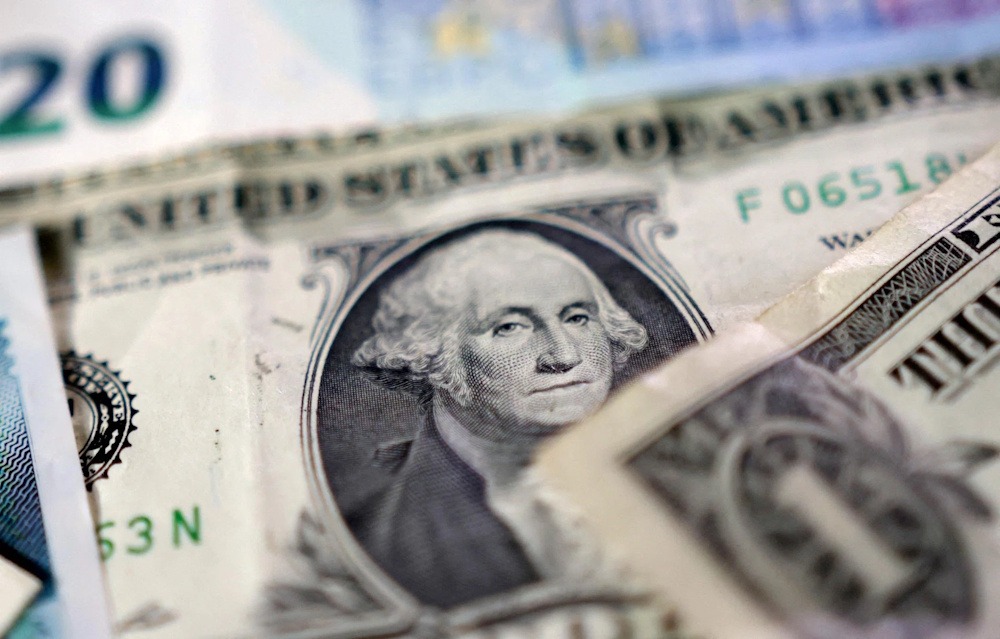
The U.S. dollar remained stable on Friday, poised for a modest weekly increase against key competitors as investors prepared for postponed inflation data, which is expected to have little impact on the Federal Reserve’s decision to reduce interest rates in the upcoming week. Concerns regarding the trade war resurfaced as U.S. President Donald Trump announced the cessation of all trade discussions with Canada, citing a misleading advertisement featuring former President Ronald Reagan that criticized tariffs. The Canadian dollar slightly declined to 1.4015 per U.S. dollar during Asian trading hours, yet the overall market response remained relatively muted. Investor attention is centered on the upcoming meeting between Trump and Chinese President Xi Jinping. The upcoming meeting in South Korea has generated anticipation regarding a potential resolution to the intensifying trade conflict between the leading global economies.
“If President Trump’s meeting with President Putin is any guide, we expect at least some issues will remain unresolved,” stated Joseph Capurso. “The optimal scenario is a renewed trade truce in our assessment…” Our outlook for a favorable result from the meeting remains subdued. Our assessment indicates that market expectations are subdued, suggesting a limited response from currencies in the upcoming week. Market participants are closely monitoring the upcoming U.S. Consumer Price Index for September, scheduled for release later on Friday. Expectations are set for a 0.4% increase in the headline figure and a 0.3% rise in the core measurement month-on-month. The U.S. Bureau of Labor Statistics announced last week that it will proceed with the publication of the inflation report, even amid the ongoing government shutdown, which has now reached its fourth week.
This action aims to support the Social Security Administration in determining the annual cost-of-living adjustment for 2026, impacting millions of retirees and other beneficiaries. While analysts do not anticipate the data to impede the Fed’s trajectory towards a 25 basis point rate cut next week, it may offer insights into the central bank’s potential actions during its December meeting. Market participants are nearly fully anticipating a rate cut in the upcoming week, followed by an additional reduction at the December meeting. “It would take a significant positive deviation for the market to reconsider its stance on a further interest rate reduction by the Fed,” stated Julien Lafargue, chief market strategist at Barclays Private Bank. The euro remained relatively stable at $1.160775, yet it is projected to experience a decline of approximately 0.3% for the week. Sterling remained unchanged at $1.3331, on track for a 0.8% decline for the week.
The dollar index, which evaluates the U.S. currency in relation to six other currencies, was positioned for a 0.37% increase for the week. The last recorded value was 98.92. Recent U.S. sanctions targeting significant Russian suppliers Rosneft and Lukoil in response to Russia’s war in Ukraine have resulted in a notable increase in oil prices, following similar sanctions imposed by Britain on these companies last week. The currencies linked to oil imports, such as the yen, were negatively impacted by that factor. The yen’s trajectory is closely linked to the strategies of Japan’s newly appointed Prime Minister Sanae Takaichi, who is generally regarded as a proponent of fiscal and monetary easing. The Japanese yen has depreciated to a two-week low, currently trading at 152.90 against the U.S. dollar. Data released earlier on Friday indicated that Japan’s core consumer prices remained above the central bank’s 2% target, sustaining expectations for a potential near-term rate hike. Takaichi is formulating an economic stimulus package anticipated to surpass last year’s $92 billion, aimed at assisting households in addressing inflation, according to government sources. The Bank of Japan may face a significant challenge in raising interest rates next week, as traders currently assign only a 19% probability to such an increase. “Given the Takaichi administration’s desire for close coordination between the government and the BOJ, it is likely that the BOJ will hold off on raising interest rates until the economic package mandated by Takaichi has successfully passed through parliament,” stated Capurso.
